Last Updated on July 7, 2024 by Max
Introduction
Reading wonderful books by a great Romanian phytotherapist Prof. Ovidiu Bojor, inspired me (about me) to write this post on the natural treatment of enlarged prostate and prostatitis. Prof. Ovidiu Bojor – the father of modern Romanian phytotherapy, has put all his energy into discovering the best recipes that could make our lives more beautiful, longer, and healthier. This man, who climbed the Himalayas four times, in his 95 still working 8-10 hours a day, always resilient, better than anything else, is demonstrating on the example of his life that living in harmony with nature is the best way to healthy living. His books are indispensable landmarks for anyone who is craving to live a healthy and happy life.
- Introduction
- General Recommendations to Prevent Prostatitis
- Treatment of Enlarged Prostate and Prostatitis: Dietary Recommendations
- Other Dietary Recommendations to Cure Prostate
- Phytotherapy of Enlarged Prostate and Prostatitis
- Miscellaneous Treatments of Enlarged Prostate and Prostatitis
- Herbal Teas to Treat an Enlarged Prostate and Prostatitis
General Recommendations to Prevent Prostatitis
- Do not expose yourself to cold or moisture. Avoid staying on cement or cold chairs. Protect your extremities from the cold; look for warm footwear. Also, do not sit for a long time in the chair (at the computer, in the office, at the wheel) and especially ride a bicycle or motorcycle; it creates congestion in the prostate area.
- Avoid excessive meat consumption. Meat stimulates, irritates, and inflates the sexual organs, especially the prostate gland, leading to its inflammation.
- Treat constipation, if it exists, because it puts severe pressure on the pelvic organs and creates a favorable environment for pathogen germination.
- Excessive or abnormal sexual practices can cause prostate congestion and create a favorable environment for the stagnation of secretions, glandular swelling, or bacterial growth.
- Drink plenty of water to stimulate the diuresis and eliminate the toxins.
- Eliminate coffee, green or black tea, alcoholic beverages, tobacco, spices, spicy or smoked seasoning, chocolate, cola, cocoa, and vinegar as they may act as chemical irritants. Many drugs, including pilocarpine, also have an irritant effect on the prostate.
- In most cases, antibiotics should be regarded as an inappropriate solution.
- Do not let the bladder overfill. Urinate as soon as you can when you feel the need. Try to empty the bladder completely.
Treatment of Enlarged Prostate and Prostatitis: Dietary Recommendations
JUICES. It is recommended to have a juice and a crust cure for 1-2 months or at least adopt a vegetarian diet, especially cruciferous. You can use the following juices:

Nettle juice: 2 glasses/day, long-lasting. The components of the well-known plant stimulate the immune system, substantially increasing the number of antitumoral lymphocytes. Nettle extract is “far superior” to the Indometacin anti-inflammatory drug, said Dr. Hans Wagner in the Journal of “Phytomedicine.” Excellent properties in the treatment of prostate diseases also have the roots of the nettle.
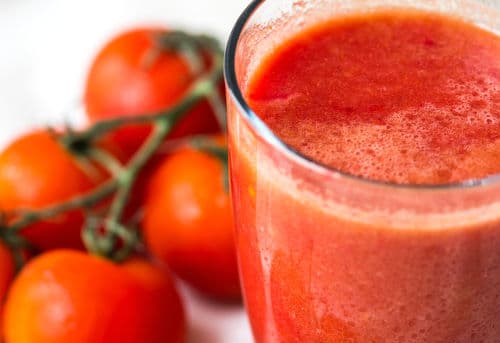
Tomatoes juice (fresh, uncooked!): 1-2 glasses/day. Lycopene is the carotenoid found in abundance in the skin of tomatoes. The incidence of prostate cancer was found to be lower in the areas where full-grain tomatoes are used. Drink plenty of fresh tomato juice. The lycopene is also found in pink grapefruit, sea buckthorn, red carrots, watermelons, gac, and papayas. Lycopene may also be a component of foods that are not red, such as asparagus and parsley.
Green Barley and/or Green Oat juice: 1 glass/day. Green barley and oats are rich in zinc and have anti-inflammatory effects.
Parsley juice (leaves): 1 glass/day. It is a powerful juice that helps with urogenital diseases.
Cabbage juice: 1 glass/day. Cabbage has anti-inflammatory effects and contains a lot of powerful substances that fight cancer (indole, isothiocyanate, monoterpene, sulforaphane, etc.).
Plantain juice:1 glass/day. Plantain (Plantago lanceolata ) leaves contain zinc which is vital for the balance of the male hormone testosterone, which means it is helpful in the case of an enlarged prostate. Also, the patch of the leaves applied to the skin has an anti-inflammatory effect. The juice can be prepared in a blender.
Plantago lanceolata has an antiseptic, bactericidal, bacteriostatic and diuretic action. It contains two essential iridoid glycosides: aucubin – with antiviral, anti-inflammatory, and antimicrobial effects and catalpol with anti-hypertensive, spasmolytic, anti-inflammatory, and antiviral effects.
Plantago lanceolata tea recipe ingredients:
- 120 leaves of plantain
- 2 liters of water
- 200 g of honey
- 2 lemons
Tea preparation. Wash the fruits with apple vinegar before squeezing them to remove any pesticides from the bark.
Put the juice aside and peel the bark. The remainder of the lemons and plantain leaves are put into water and heated until the volume of the water drops to 600 ml. Strain the liquid into a jar, chill, and then add lemon juice and honey. Drink one cup (50 ml) daily on an empty stomach to relieve symptoms.
Instead of green leaves, you can use plantain powder. Take 4-6 teaspoons a day on an empty stomach.
Moon Radishes contain substances with a strong antibiotic effect, have anti-inflammatory action on the kidneys and the prostate, and help control urinary sphincters. Consume these roots abundantly. You can also use radish juice (100 ml) combined with carrot juice (150 ml).
Other Dietary Recommendations to Cure Prostate
Cure with wheat germinated. Consume 3-4 tablespoons of wheat germinated each day, 10-15 days a month. You can also prepare delicious milk according to the following recipe:
- 4 tablespoons of germinated wheat
- ½ apple (optional)
- 4 walnuts
- 1-2 tablespoons of honey
- 1 cup of hot water.
Mix all ingredients in a blender or mixer.
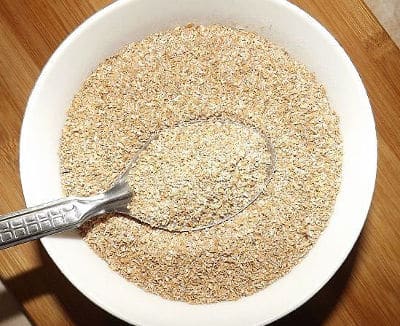
Ground wheat bran, prepared with pumpkin seeds or watermelon (Curcubita pepo). Take eight tablespoons of pumpkin seeds and crumble (unheated and not peeled). Then put it in 1 liter of water and boil for 15 minutes. Allow cooling. Take the surface water containing pumpkin oil and set it aside for the next day. The remainder of the liquid should be mixed with five tablespoons of wheat bran and left for the night, and strained — the liquid combines with water containing the oil. You can also add the juice from two lemons and honey if you do not have diabetes, or obesity, or are not allergic.
Cure with pollen and royal jelly. Several studies have shown that bee pollen treatment yields exceptional results in healing prostate adenoma and hypertrophy. It is recommended to take at least 10 grams of bee pollen in combination with 100 mg of royal jelly daily for at least 60 days to get noticeable results.
The yeast cure has shown beneficial effects even in prostate cancer. Experimental studies demonstrated that daily ingestion of this product resulted in malignant development stopping in less than three months.
Take 2-3 yeast tablets per day for three weeks. Make a 7-day break and repeat.
Consume soy foods. Soybeans contain substances called isoflavones that may protect against prostate disease.
Eat regular lentils, nuts, and sweet corn. They contain glutamic acid, an amino acid that may reduce the size of the enlarged prostate.
Phytotherapy of Enlarged Prostate and Prostatitis
Combination of equal amounts of spiny cocklebur (Xanthium
Thuja tincture has an action to strengthen urinary sphincters, especially in senior men who are experiencing an organic disability to control micturition. Moreover, this plant has potent anti-inflammatory and anti-infectious effects on the genitourinary system, being recommended in prostatitis but also in hemorrhagic or recurrent cystitis.
Take a teaspoon (about 5 ml) of the tincture in a small amount of water three times a day for 3-weeks, and then take a break for a week.
Propolis tincture – 30 drops, three times a day, taken on a dry piece of bread. Propolis suppositories can be successfully used for 15 days. Good results have been obtained in prostate infection (prostatitis), hypertrophy, and prostate adenoma.
Miscellaneous Treatments of Enlarged Prostate and Prostatitis
Hot bath. You can take a hot bath, sit in the bathtub, or have a seating bath. The bath should be taken at least for 15 minutes; Take a bath a day, but in the case of prostatitis, take two baths a day.
Take a hot tub with the temperature increasing progressively, using horsetail or hay flowers for 20 minutes 3 times a week.
Cure with clay. Put a spoonful of clay powder in a glass of water. Stir well and leave to soak for the night. In the morning, mix well and drink as such. The cure lasts for 30 days.
Hot stove with vegetal charcoal. Use a cup of hot water (not burning) and a spoonful of coal dust; put the mixture into the rectum with the irrigator. Keep a mix as long as possible, during the night, if possible. The treatment is especially useful in prostatitis.
Prostate Massage. Stay straight, stretch your right foot over the left one, and touch the floor with your right toe. Return to the original position. Now stretch your left foot across the right one, touching the floor with your left toe. Increase the number of repeats up to at least 50.
Prostate sphincter exercise is recommended to avoid prostate sphincter weakening and uncontrolled urination. Exercise your sphincter by contraction (clamping and relaxation) of the prostate muscles. Start from a small number of contractions and gradually increase to a few hundred daily. You can do prostate sphincter exercises in any position and time. You’ll notice the positive effect of the training from the very first days.
Herbal Teas to Treat an Enlarged Prostate and Prostatitis
Tea contains a mixture of 14 herbs:
- SmallFlower (Epilobium
augustifolia ) - Spiny cocklebur (Xanthium
spinosum ) - Yarrow (Achillea millefolium)
- Horsetail (Equisetum arvense)
- Sweet flag or calamus (Acorus calamus)
- Spiny restharrow (Ononis spinosa)
- Cornflower (Centaurea cyanus)
- White nettle or white dead nettle (Lamium album)
- Corn Silk (Stigmata
maydis ) - European goldenrod or woundwort (Solidago
virgaurea ) - Common soapwort (Saponaria officinalis)
Liquorice or licorice (Glycyrrhiza glabra)- Blue eryngo or flat sea holly (Eryngium planum)
- Silver birch (Betula pendula)
Preparation: Put one tablespoon of the mixture into 250 ml of hot boiling water. Stop heating when you have introduced the herbs, and leave to cool out with the coated pot. Drink tea in the morning and in the evening 30 min before the meal.
This tea is an excellent preventative treatment for enlarged prostate and prostatitis in men over 50. Healthy men follow the procedure for two months a year, men with prostatitis and prostatic lithiasis (stones) for 1-4 months a year, and men with adenoma or early cancer- for six months a year. After the first month of treatment, two weeks of pause are recommended in all cases, followed by 2-5 uninterrupted cures.
Cure with this tea is also indicated for women who often urinate or for children of 0-14 who have enuresis for 1-3 months.
Therapeutic effect: tea stimulates micturition so that active substances from the herbs stimulate wound healing, lower inflammation, and disappear adenomas, pains, and infections.
For increased efficacy, two teaspoons of Spiny cocklebur and Smallflower tincture in a cup of tea are recommended.
Prostate Health Tea is a product that helps maintain prostate health and normal urinary function by relieving diuresis. Prostate Health Tea is based on revolutionary formulas designed by the famous phytotherapist Prof. Ovidiu Bojor. The tea is compliant with European quality standards.
The composition of tea: Smallflower hairy Willowherb (Epilobium parviflorum), dwarf palms (Serenoa repens), and Spiny cocklebur (Xanthium spinosum).
Administration. Adults: add a teaspoon of the powder of herb mix to 250 ml of cold water, keep for 6-8 hours at room temperature, then squeeze and drink on an empty stomach. Take 3 cups of macerate per day 30 min before the meal.
Infusion of herbs is prepared from a spoonful of plants added to 250ml of boiling water. Keep at room temperature for 15 minutes, strain, and drink on an empty stomach. Take three infusion mugs per day 30 min before the meal.
Sublingual powder – the plants are finely ground with an electric stirrer. Take one teaspoon of the powder three times a day on an empty stomach. The powder is kept under the tongue for 10-15 minutes, then swallowed with water. It is recommended to use in 3-month treatments, followed by a 30-day break.


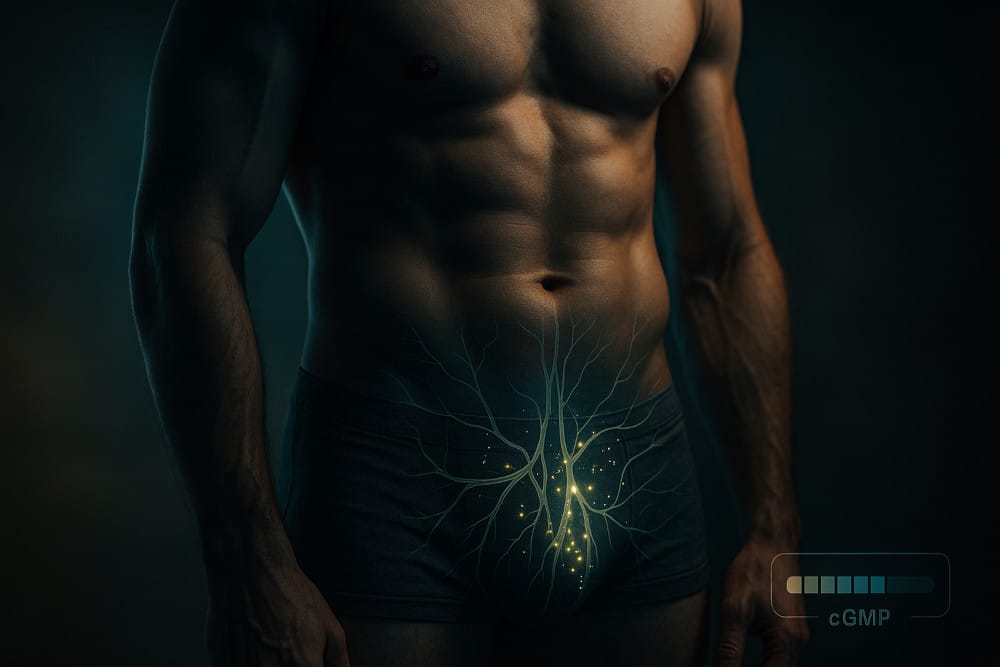
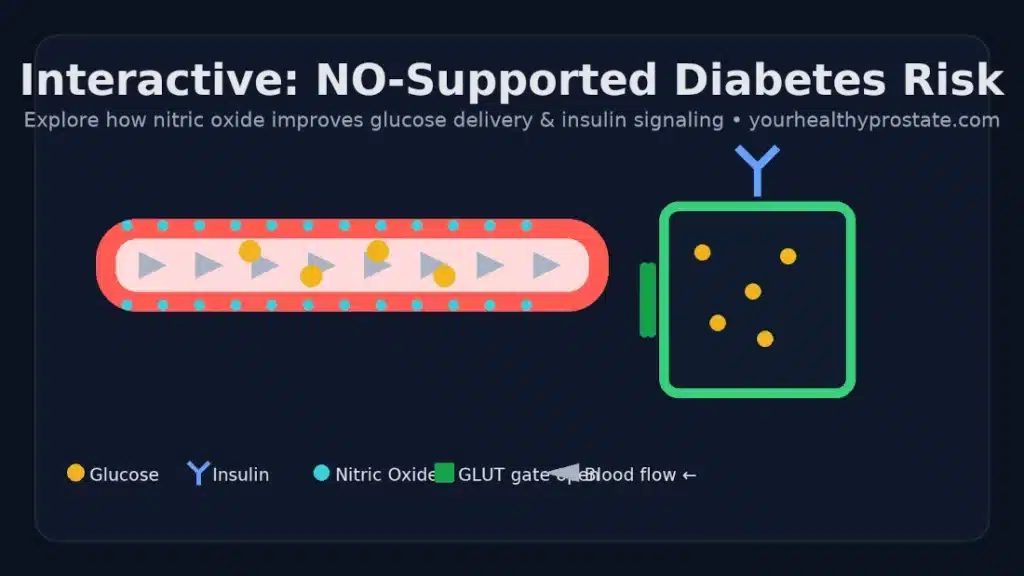



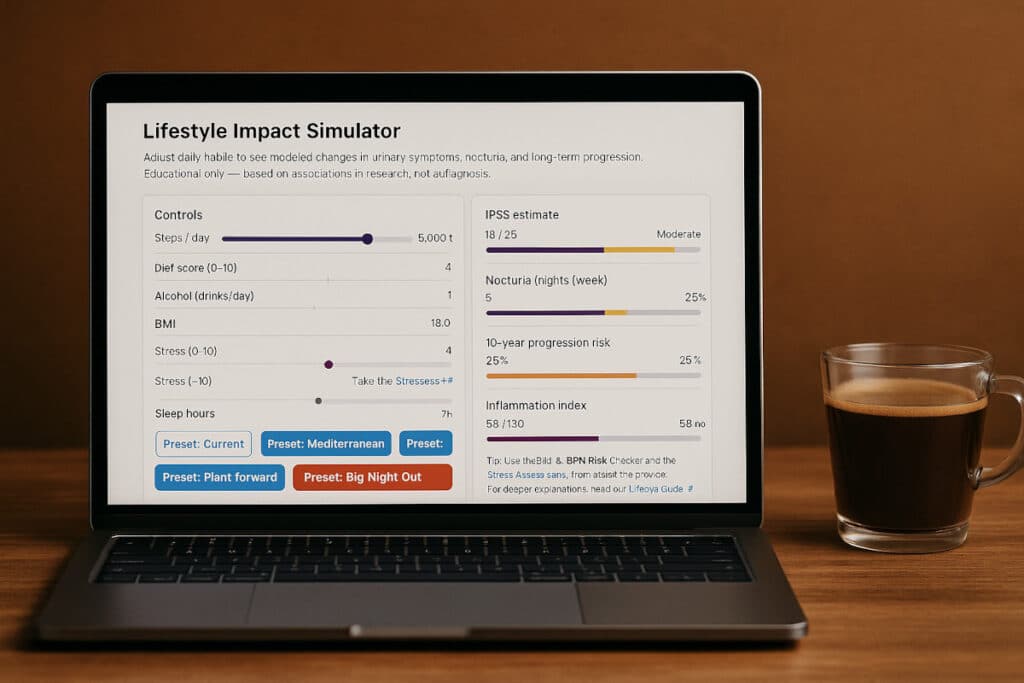
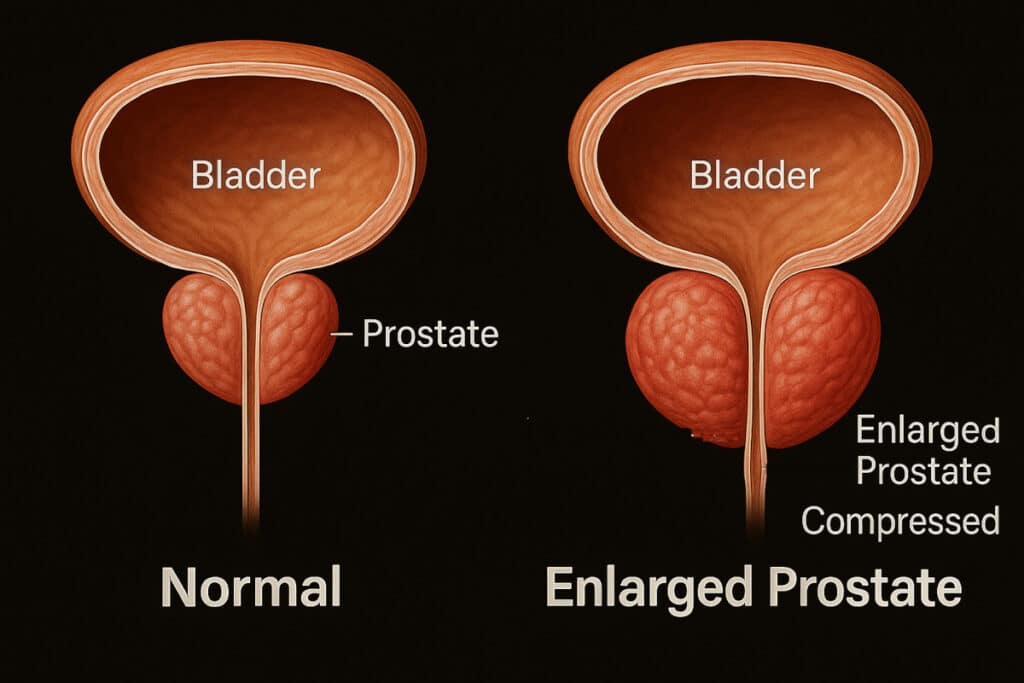
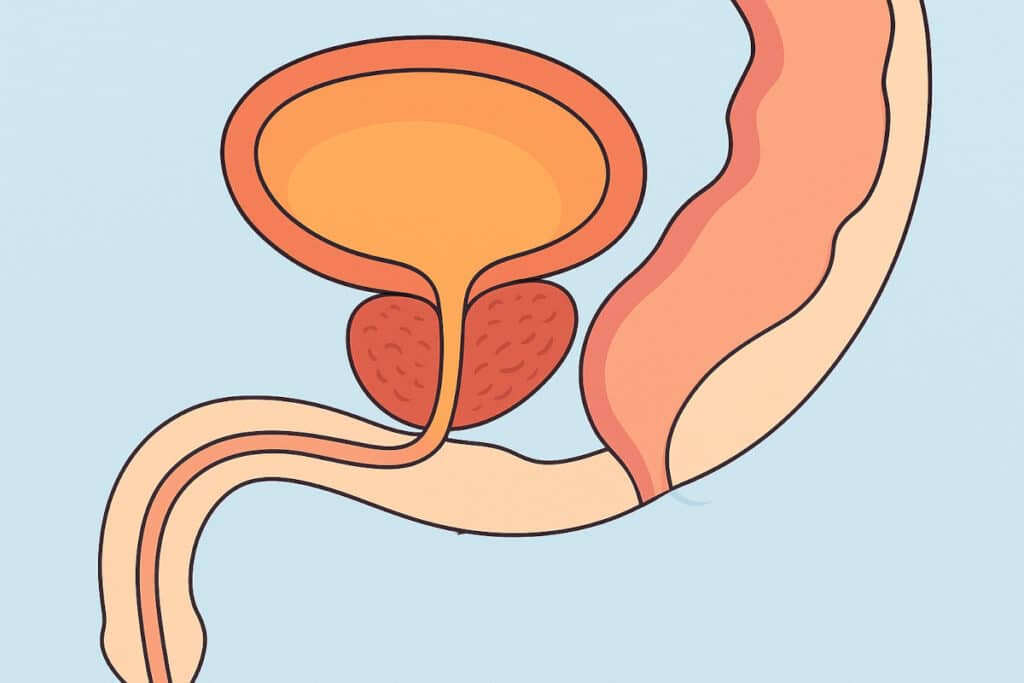
Problem: restricted peeing.
Prevention: Saw Palmetto- 1200mg before breakfast. 1200mg late morning.
Result: Adequate bathroom time.
Thank you, Aubrey, for your comment. Your experience in Saw Palmetto used for LUTS may turn to be helpful for many men suffering from restricted peeing. It would be more convincing if you set forth your recommendations more broadly. How long have you been using SP, do you recommend making breaks, have you noticed any side effects and so on. I should say my personal experience of SP use was negative. Look for more here. But I admit, it may have a positive impact on the low urinary symptoms.
Hi Max,
Just wanted to thank you for building this website. What a great help it has been! I’ve been dealing with prostatitis for some time and peaked 5 weeks ago. It was pretty bad before I happened to run into some synchronicities of pertinent advice from online Naturopaths, and your website. You offer many pieces of relevant and useful information from your website, including using clay orally and in poultices to deal with it (highly effective in the acute stage), coffee enemas (good for getting rid of fungus and general detoxing of the large intestine and liver), and using your decoction of shilajit and eucalyptus as an implant (I used eucalyptus essential oil). The overall effect is you are getting the chemical mechanism of action with the essential oils and the physical action of the clay absorbing and adsorbing the A Naturopath recommended a plant-based diet for 30-60-90-120 days and am 30 days in which is also very helpful. Found this “immunity shot” highly effective (not a jab mind you) h ttps://naturallivingfamily.com/essential-oils-for-immunity/
INGREDIENTS
1 serving Liposomal Vitamin C
1 teaspoon raw honey
1 teaspoon unrefined coconut oil
1-2 drops Immune Boost Blend Essential Oils*
¼ teaspoon organic pumpkin pie spice or cinnamon powder
Tiny pinch pink Himalayan salt
Immune blend: Equal parts Cinnamon Bark, Clove, Eucalyptus, Rosemary, Orange and Lemon Essential Oils. The pumpkin spices (made my own blend) are all anti-parasitic and using the physical spice seemed to give as good a bodily response as using the essential oils as it had staying power all the way through the colon. Read that thyme essential oil was good for prostate cancer so been filling gelcaps with a few EO’s and a carrier as insurance. Found peppermint (good for liver detox) and oregano were also beneficial. Nutmeg and lavender EO good for topical use for pain and reduce swelling.
So this essential oil blend was found effective to deal with the bacterial buildup and also includes some strong anti-parasitic herbs. I did a 2-week course of this and found it pretty much dealt with the bacteria/parasite prostate infestation issue, at least so far. Cleaning up this area in men’s bodies physically through a series of daily enemas, the shilajit/eucalyptus implants, and the support from the immunity blend essential oils was also good to add to the protocol. Have been improving daily.
Have added some nutritional flakes to my diet (seems effective) and am going to start on bee pollen and royal jelly soon as per your advice. The plant-based diet was a system-shock but in a very good way. Am doing a series of Dr. Hulda Clark’s cleanses now but it seems as if much of the parasite issues are waning since they were dealt with prior with the “immunity shot”. Building up to be able to do the liver flush.
Just offering this in thanks to your awesome website, great common-sense information, and practical steps to deal with things first, at home, using my own research and judgment vs. flying off to see some Dr. who may indeed not know what’s best, who might offer something that might help a little but then cause other issues to arise. Better to use your website as a resource, I appreciate the fact that you’re being a biologist, you understand these matters deeply.
You’re the best! 🙂 Thanks on behalf of everyone for building and hosting this resource.
Tom
Hi Tom.
Firstly let me thank you for your comment. It surely adds some new useful information about essential oils as prostate issues treatment tools.
I’m sure that bacterial and parasitic infestations, as well as toxins, are the most important causes of any kind of inflammations. And the effective ways aiming to cleanse the body should be considered as the mainstream of the ultimate prostate healing. It doesn’t mean that I call to neglect the official medicine; usually, it works well as the first aid but, as you noted, the regular use of purified chemicals usually causes adverse side effects. That’s why we should prefer the natural way, it works not so fast as the prescribed drugs but in the long run, you will be able to get rid of your illness.
I’m wondering about bicarbonate soda enemas for same purpose? And did I read here somewhere that turmeric aggravates Prostate? I’ve been using a lot both powder and raw and do have pain in Prostate maybe I’ll try cutting back on it. I am dealing with a PSA of 75 a hard left lobe and what appears to be a tumour on MRI no biopsy as yet. I’ve heard prostatitis can be present with cancer and have had prostatitis symptoms for long time. I’m vegan eat only organic and exercise just started seriously juicing
Hi Lawrence
Tumeric is good stuff, at least all the world literature agrees that it is one of the best anti-inflammatory natural remedies. But we must remember that this is also a spice, which can cause symptoms of prostatitis. Therefore, it is advisable to consume it during the first half of the day to avoid unwanted symptoms at night. In addition, there is scientific evidence that the absorption of turmeric is very low, and black pepper can increase its availability by up to 2000 times. Therefore, always add a little black pepper, no more than 1/10 of the turmeric.
I agree that baking soda can be tried to reduce prostatitis symptoms; there is scientific evidence confirming the anti-inflammatory properties of soda, not to mention the whole treatises that are walking on the Internet, which attribute to soda the role of an elixir for all diseases. Anyway, check with your doctor if you have any contraindications for taking soda, its concentrations, and duration of treatment.
This is a very big plus that you are eating organic food and are active and started juicing. But keep in mind that over workouts and especially overload in the peritoneal area can aggravate the symptoms of prostatitis. Especially avoid exercises while lying on your belly. Try the stretching exercises I described in my post:https://yourhealthyprostate.com/cure-prostatitis-and-chronic-pelvic-pain-syndrome-by-chinese-medicine-practices/. I started doing them about 5 years ago, and now I continue to do them for 20 minutes for each leg. Of course, you need to start with 2-3 minutes. Hopefully, you’ve already researched the juices question. I can only add that fruit juices have practically no noticeable healing effect. Include more cruciferous juices and salads. Avoid sugar in any form. Prostate size and PSA do not tell you that you have cancer. I really hope that you will be able to take control of the condition of your prostate. I would be grateful if you would share the results of your treatment with the readers of the site. Whether it results in what you expect to get or not, it is a valuable experience.
Have a great weekend!
Stay safe.
Max.